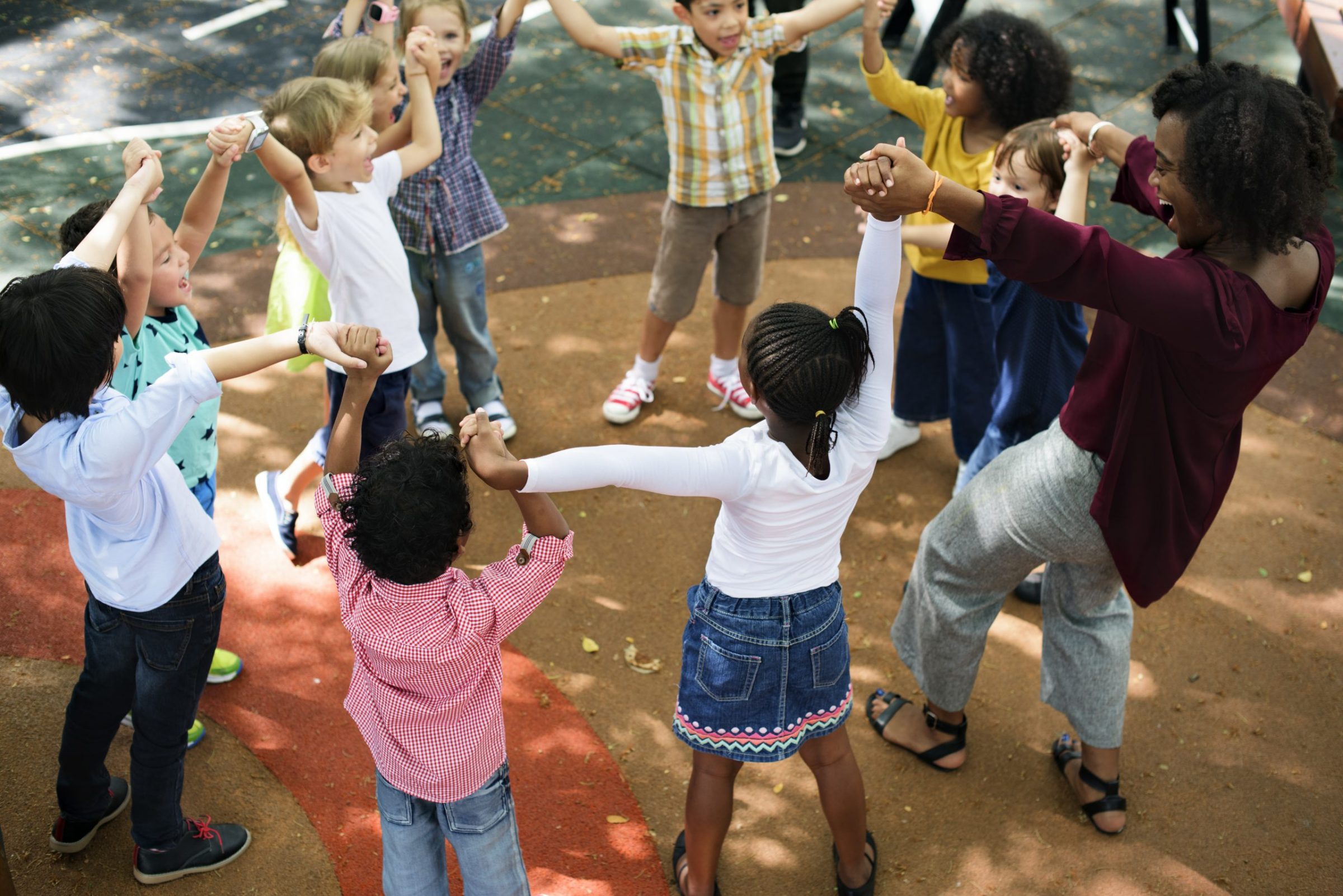Summary
SRI Education is conducting an evaluation of the Pyramid Model (PM). The PM is a three-tiered framework that provides evidence-based guidance to early childhood educators on effective behavior support and instructional practices to promote social-emotional competence and reduce challenging behaviors of children with and without disabilities in preschool and kindergarten classrooms. The 5-year study (2017–2022) is funded by a U.S. Department of Education, Education Innovation and Research mid-phase grant and conducted in partnership with Vanderbilt University (VU) and Metro Nashville Public Schools. The study is taking place in approximately 100 preschool and kindergarten classrooms in urban and rural settings. SRI researchers are conducting direct assessments of children’s skills and collecting ratings of children’s social and academic skills from participating teachers to evaluate the impacts of the PM on child outcomes. SRI and VU also collect data on implementation outcomes, including teacher and coach fidelity.
The pyramid model intervention
The Pyramid Model (PM) is an evidence-based, three-tiered model of classroom strategies that help early childhood educators promote the social-emotional competence and address challenging behaviors of children with and without disabilities in preschool and kindergarten classrooms. The PM provides guidance for early educators about the use of effective behavior support and instructional practices. The evidence-based PM practices are organized using a three-tiered Response to Intervention (RTI) framework, which includes (1) universal or promotion practices to support social-emotional learning and skills of all young children, (2) preventive practices for children of challenging behavior, and (3) individualized intervention practices for children with persistent challenging behaviors. PM practices build on the premise that addressing adult behavior and classroom-wide practice can solve most challenging behaviors in the classroom and prevent many problems before they arise. The PM also recognizes the need for individual intervention for a small percentage of children whose challenging behavior persists even when promotion and prevention practices are in place. PM implementation includes extensive professional development of educators, including individualized coaching support around the three tiers of PM practices.
There is strong evidence for the efficacy of the PM in preschool classrooms when educators receive intensive coaching from the PM developers. In this study, SRI researchers are investigating the feasibility of scaling up PM practices by building the capacity of local, district-hired coaches and evaluating whether this strategy leads to reduced child problem behaviors and improved social and academic skills. The project is also examining whether the PM framework can be expanded for use in kindergarten classrooms and promote kindergarten teachers’ use of effective behavior support and instructional practices.
Evaluation study
This independent evaluation study is funded through a 5-year (2017–22) Education Innovation and Research mid-phase grant through the U.S. Department of Education and conducted in partnership with Metro Nashville Public Schools and Vanderbilt University. The project uses the Practice-Based Coaching (PBC) framework to support district-hired coaches who in turn train and coach preschool and kindergarten teachers to implement PM strategies with fidelity. This “train the trainers” model is hypothesized to build district capacity to sustain implementation of the PM practices after the grant ends.
SRI evaluators are examining whether, when implemented under a PBC framework using district-hired coaches, the PM prevents and reduces challenging behaviors and increases social-emotional competence and academic skills among preschool and kindergarten children. The randomized controlled trial is taking place in approximately 50 schools and 100 preschool and kindergarten classrooms in one urban and one rural school district. Teachers rate participating preschool and kindergarten children’s social skills, problem behavior, and academic competence. In addition, SRI researchers are conducting direct assessments of children’s self-regulation and problem-solving skills. Researchers are currently collecting child data and analyzing and disseminating preliminary findings.
Associated field of research
Clients & partners
Associated SRI team members
-

Erika Gaylor
Principal Senior Researcher and Early Childhood Program Leader, SRI Education
-

Elisa Garcia
Principal Researcher, SRI Education
-

Betsy Davies-Mercier
Senior Researcher, SRI Education
-

Mary McCracken
Senior Scientific Programmer/Analyst, SRI Education



